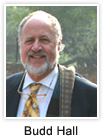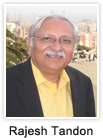Budd speaks:
 Dec 4 was the birthday celebration of a Canadian by the name of Murray Thomson. He was 90 years old. He is Canada’s leading peace educator and one of the greatest peace activists that Canada has ever produced. Born in China to Canadian missionary parents, he was one of seven children all of whom went on to make contributions to their communities. Murray was influenced by Gandhi-ji, by Buddhist traditions, by the Quaker spiritual affiliation and by the great Canadian adult educator Moses Coady. Murray has been a mentor of mine for 30 years. He was active in the Peace Education network of the International Council for Adult Education and was the founder of PeaceFund Canada, a funding body that provided modest funds to hard to fund activist groups throughout the world.
Dec 4 was the birthday celebration of a Canadian by the name of Murray Thomson. He was 90 years old. He is Canada’s leading peace educator and one of the greatest peace activists that Canada has ever produced. Born in China to Canadian missionary parents, he was one of seven children all of whom went on to make contributions to their communities. Murray was influenced by Gandhi-ji, by Buddhist traditions, by the Quaker spiritual affiliation and by the great Canadian adult educator Moses Coady. Murray has been a mentor of mine for 30 years. He was active in the Peace Education network of the International Council for Adult Education and was the founder of PeaceFund Canada, a funding body that provided modest funds to hard to fund activist groups throughout the world.
The celebration in Toronto consisted of two parts: A Symposium in the afternoon on “Ending the threat of Nuclear weapons” and an evening celebration of his life of humour, music, friendship, family and activism. His focus over the past four or five years has been on efforts to eliminate the threat of nuclear weapons. He reminds us that while there has been a reduction of the total number of nuclear warheads in the world from about 80,000 to less than 20,000, the number of countries that have such weapons have expanded from 5 to 14. He quotes from the late Robert McNamera, a former US Secretary of Defence who said that they were merely lucky in the Cuban missile crisis 50 years ago that a nuclear weapon was not used. McNamera said that is is clear that at some point, a nuclear weapon will be used unless we redouble our efforts to eliminate them from our arsenals of war.
It reminds me that when we list the challenges facing our communities and our world, we easily speak of climate change, of inequality, or food security and of sustainability, but of those weapons that could wreak havoc with all of the above, we are nearly silent these days.
When we speak of a democracy of knowledge, we include the knowledge of those whose ideas are outside the academy. We speak of the knowledge of the social movements. I am reminded of the voice of one such movement activist, of Murray Thomson. His wisdom is worth considering as we take stock of our present and cast our minds to the future. Is it not time to end this one threat to all humanity?
Rajesh speaks:
 Dec 4 is also the anniversary of Bhopal Gas Disaster, the worst industrial accident that killed more than 5000 people, and ruined the health of nearly one hundred thousand. The MIC gas leaked out on the night of Dec 3, 1984—28 years ago. The drama that surrounded the gas leakage was unbelievable; the multi-national company Union Carbide whose plant it was, denied any knowledge of what gas it was or that there was ever any safety problem; the government of India completely ignored the caution being provided to prepare for better hazard regulation; it pretended that very few had been affected, and even imposed the draconian Officials Secrecy Act to deny public information of autopsy reports of the dead. The legal brigade from America came ambulance-chasing to find victims so that huge compensation claims can be launched. Bhopal became a ghost town, and affected families ran for cover.
Dec 4 is also the anniversary of Bhopal Gas Disaster, the worst industrial accident that killed more than 5000 people, and ruined the health of nearly one hundred thousand. The MIC gas leaked out on the night of Dec 3, 1984—28 years ago. The drama that surrounded the gas leakage was unbelievable; the multi-national company Union Carbide whose plant it was, denied any knowledge of what gas it was or that there was ever any safety problem; the government of India completely ignored the caution being provided to prepare for better hazard regulation; it pretended that very few had been affected, and even imposed the draconian Officials Secrecy Act to deny public information of autopsy reports of the dead. The legal brigade from America came ambulance-chasing to find victims so that huge compensation claims can be launched. Bhopal became a ghost town, and affected families ran for cover.
It was the voice of workers in Bhopal gas plant that had indicated previous leakages; it was the knowledge of American workers in mother plant of Union Carbide in Institute, West Virginia which claimed it was the deadly MIC gas. The workers’ knowledge also suggested that safety manual of the company in Bhopal was much weaker in controls than the one in Institute. The Highlander Centre, Centre for Science & Environment and PRIA produced a most authentic document based on such indigenous knowledge entitled ‘No Place to Run’.
Had that knowledge been paid attention to by management of the company in Bhopal and Institute, had the government regulators paid respect to such indigenous knowledge, the disaster could have been averted.
There is a similar struggle for recognising the validity of knowledge that Budd’s story of Murray Thomson reminds us today. Thousands of fisher-folk are protesting for months in Tamilnadu against a forthcoming nuclear power plant in India. Their struggle has been reinvigorated after the tsunami-affected nuclear plant in Japan last year. Yet, the knowledge of fisher-folk about warming of sea waters due to its effluents and large-scale destruction of fisheries has been dis-regarded by the scientific establishment. Experts from India and Russia (which has built this plant) have been mobilised to prove the ‘safety of the plant beyond doubt.’ Science of experts is posited against the people’s knowledge in a manner that seems to have disturbed the government. The Prime Minister accused the movement to be anti-national, and being funded by anti-India sources from America and Scandinavian countries. When forced to provide evidence on the floor of the parliament, the government baulked. The evidence is missing, but the accusation sticks, not just against that movement, but against the ‘validity’ of knowledge and protests of all civil society in India.
On this occasion, therefore, we dedicate our campaign for knowledge democracy to ‘knowledge for peace’; it is this approach to inclusive knowledge democratically accessible and contesting in public sphere that will ensure peace for humanity, and planet earth!
December 8, 2012




